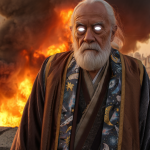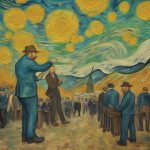Collective Euphoria: When Mass Hysteria Leads to Financial Ruin
Dec 06, 2025
Introduction: The Seductive Allure of Boundless Optimism
“What frenzy dictates this?” – William Shakespeare
In the mercurial dance of markets, few phenomena hold more sway over the human psyche than collective euphoria. Like an intoxicating elixir, it courses through the veins of investors, distorting reason and emboldening even the most prudent to cast caution asunder. Fueled by an insatiable yearning for boundless prosperity, this mass delusion is the harbinger of financial ruin – a truth as inescapable as the tides themselves.
The Contagion of Mania: Insights from the Crowd
“Men go mad in herds, while they recover their senses slowly, one by one.” – Charles Mackay
To grasp the depths of this madness, we turn to the profound wisdom of Gustave Le Bon, the pioneering sociologist who illuminated the paradoxical nature of crowd psychology. Le Bon’s seminal work unveils how forming a crowd strips individuals of their rational faculties, rendering them susceptible to the most primitive impulses and collective delusions.
This phenomenon finds its apotheosis in the financial markets, where the infectious fervour of euphoria spreads like wildfire, consuming even the most seasoned investors. As the mania takes hold, the herd mentality reigns supreme, drowning out the faint whispers of reason with a cacophony of unbridled optimism.
The Siren Song of Greed: A Cautionary Tale
“Greed is a bottomless pit which exhausts the person in an endless effort to satisfy the need without ever reaching satisfaction.” – Erich Fromm
In the annals of financial history, the cautionary tale of the South Sea Bubble stands as a chilling testament to the ruinous power of collective euphoria. In the early 18th century, a frenzy of speculation gripped the British public, fueled by the promise of untold riches from the South Sea Company’s monopoly on trade with the Spanish colonies.
Like moths drawn to a flame, investors from all walks of life succumbed to the intoxicating allure of easy wealth, pouring their life savings into the company’s shares. Even the great Sir Isaac Newton, a titan of science and reason, fell victim to this collective madness, famously remarking, “I can calculate the motion of heavenly bodies, but not the madness of people.”
As the bubble inevitably burst, fortunes evaporated, and the harsh reality of unbridled greed came crashing down upon the deluded masses.
The Paradox of Uncertainty: Embracing the Unknown
“The only thing that makes life possible is permanent, intolerable uncertainty; not knowing what comes next.” – Ursula K. Le Guin
Uncertainty reigns as the true sovereign in the markets’ ever-shifting tides, casting its shadow over even the most meticulous calculations and analyses. Yet, this uncertainty holds the key to unlocking profound opportunities—a truth that eludes the euphoric masses.
Here, we find solace in the wisdom of the ancient Greek philosopher Heraclitus, who proclaimed, “No man ever steps in the same river twice, for it’s not the same river, and he’s not the same man.” This profound insight reminds us that the only constant is change itself, and those who embrace the ever-evolving nature of reality are poised to thrive amidst the chaos.
The investors remain grounded in this understanding and possess the clarity to navigate the turbulent waters of the markets with poise and precision, seizing opportunities where others see only peril.
The Folly of Conventional Wisdom: A Satirical Perspective
“Whenever you find yourself on the side of the majority, it is time to pause and reflect.” – Mark Twain
As we delve deeper into the paradoxical realm of collective euphoria, the biting wit of satirists offers a sobering perspective on the folly of conventional wisdom. With his trademark acerbic humour, the inimitable Mark Twain reminds us that the path to ruin often lies in blindly following the herd mentality.
Similarly, Jonathan Swift’s incisive observations, penned in his timeless masterpiece Gulliver’s Travels, cast a scathing light on the absurdities of human behaviour and the dangers of unchecked ambition. Swift’s satirical lens holds a mirror to the euphoric masses, revealing the grotesque distortions that arise when reason is abandoned in favour of unbridled greed.
The Mastery of Emotion: Harnessing the Cyclical Nature of Markets
“The investor’s chief problem – and even his worst enemy – is likely to be himself.” – Benjamin Graham
In the eternal dance between emotion and rationality, the true masters of the markets possess the rare ability to harness the cyclical nature of human psychology. One such figure who exemplified this mastery was the legendary investor Jesse Livermore. His uncanny timing and understanding of mass psychology allowed him to capitalise on the euphoria that consumed lesser investors.
Livermore’s profound insights, distilled from a lifetime of observing market cycles, echo Confucius’s timeless wisdom: “He who knows others is wise; he who knows himself is enlightened.” This self-awareness, coupled with an acute understanding of the collective psyche, empowered Livermore to navigate the treacherous waters of euphoria with unwavering conviction.
The Enduring Wisdom of Caution: Heeding the Ancients’ Call
“Excess generally causes reaction and produces a change in the opposite direction.” – Plato
When one navigates through the treacherous landscape of collective euphoria, the enduring wisdom of the ancients offers a steadying hand, guiding us towards moderation and prudence. Plato’s words, echoing across millennia, serve as a poignant reminder of the cyclical nature of human affairs and the perils of excess. Yet this timeless principle finds its most profound embodiment in the legendary figure of Solon, one of the Seven Wise Men of ancient Greece.
Solon’s profound understanding of the ebb and flow of fortune led him to utter the immortal words, “Call no man happy until he is dead,” a sobering caution against the fleeting nature of prosperity and the inevitability of change. This wisdom, rooted in the ancient traditions of caution and moderation, serves as an anchor amidst the turbulent seas of collective euphoria, reminding us that true prosperity lies not in the pursuit of boundless wealth but in the cultivation of a balanced and discerning mind.
In history, we find echoes of this ancient wisdom reverberating through the ages. In his timeless work, the Tao Te Ching, the Chinese philosopher Lao Tzu counselled against the pursuit of excess, warning that “he who knows he has enough is rich.” Similarly, the Stoic philosophers of ancient Rome, such as Seneca and Marcus Aurelius, championed the virtues of moderation, self-discipline, and the acceptance of life’s cyclical nature.
Yet, perhaps the ancient Greek thinkers most profoundly embodied this ethos of caution and balance. In his Nicomachean Ethics, Aristotle extolled the virtue of moderation, asserting that true happiness lies in the “golden mean” between extremes. Heraclitus, the enigmatic philosopher of change, reminded us that “the only constant in life is change,” a truth that resonates deeply in the ever-shifting tides of the financial markets.
This wisdom of caution and moderation takes on a particular significance in investing. For the moments of collective euphoria, when markets seem to defy gravity and reason, the siren call of excess grows loudest. Yet, as history has shown, such periods of exuberance are inevitably followed by a reckoning, a change in the opposite direction, as Plato so sagely observed.
Thus, the enduring wisdom of the ancients serves as a guiding light, reminding us to temper our enthusiasm with prudence, embrace uncertainty as a constant companion, and cultivate the virtue of moderation in our pursuits, for it is in heeding these timeless lessons that we may find true prosperity, not in the fleeting riches of excess but in the enduring wealth of a balanced and discerning mind.
The Final Reckoning: Choose the Knife or the Mirror
“The stock market is a device for transferring money from the impatient to the patient.” – Warren Buffett.
Strip away the charts, the forecasts, the doomsday prophets, the euphoria junkies, the analysts bathing in jargon. What remains is the only battlefield that has ever mattered: your mind against the crowd’s mind.
Every cycle asks the same brutal question:
Will you think, or will you be swallowed?
Crowd euphoria is a narcotic. It promises safety, brilliance, destiny, but it delivers ruin wrapped in applause. Reason, in contrast, stands cold, disciplined, and quietly undefeated. It demands restraint when the crowd is foaming. It demands courage when the crowd is fleeing. It demands you stop listening to noise and start watching behaviour.
Market history is merciless to the unprepared.
1929. 1987. 2000. 2008. 2021.
Every crash is a headstone for those who mistook feelings for facts.
What separates survivors from casualties is not genius. It is the refusal to kneel before collective delusion.
If you choose reason, you gain a weapon that outlives every cycle: Clarity in chaos, patience in frenzy, and the rare ability to see opportunity where others see doom.
If you choose the crowd, the outcome is already scripted.
The market will take everything you give it, then take more.
There is no middle ground.
No soft landing.
No compromise between vigilance and intoxication.
In the end, every investor writes their legacy with a single decision: follow the herd into fire, or carve your own path through smoke.
History remembers only the ones who chose the mirror over the megaphone.











